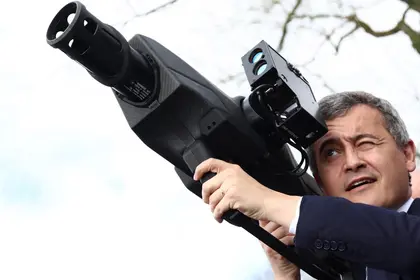The independent Russian news site Important Stories in a report on March 21 revealed that, having been urged to take responsibility for protecting themselves from Ukrainian kamikaze drones, they have done just that. It found that oil and other energy companies had put out more than 300 tenders for the provision of counter-unmanned aerial vehicle (UAV) systems since early April 2023.
According to the Moscow Times, it was around that time that Andrei Kartapolov, head of the Defense Committee of the State Duma, Russia’s parliament, said that the Ministry of Defense only had sufficient funds and air defense assets to focus “on covering important government and military facilities.”
JOIN US ON TELEGRAM
Follow our coverage of the war on the @Kyivpost_official.
He said that Russia’s air defense zones were probably known to Ukrainian and Western intelligence agencies and that “as they know approximately where our air defense systems are located, it is quite possible to launch a drone along a route [that] bypasses those same air defense areas.”
Kartapolov went on to say: “There are fairly inexpensive means of combating [UAVs] that every self-respecting corporation can purchase and supply to [protect] their facilities.”
This view was backed up by arch-propagandist Vladimir Solovyov who said on his Russia-1 television show on March 17, that if the owners of Russia’s oil refineries couldn’t take care of their safety themselves, their businesses should be taken away He made this statement following the previous week’s successful Ukrainian drone attacks on oil processing plants.

Diane Francis Interviews Mikhail Zygar, Yaroslav Trofimov on Prospects of Russia’s War on Ukraine
In January, upStream, the Norwegian media site that reports on all things oil related, said that Russian President Vladimir Putin had agreed changes to legislation that would allow private companies to base anti-drone weapons to protect their facilities.
The tenders put out by Russian energy companies, including Rosneft and Lukoil, as well as electricity suppliers such as Rosseti, was for a whole range of counter-UAV systems. These include such things as modified high-speed machine guns, cannon, anti-drone guns, radio interceptors and signal jammers, as well as protective structures such as netting to surround key areas.
Even before the recent attacks on oil refineries, security experts were already warning that the measures being put in place were likely to be ineffective. The long-range UAVs used by Ukraine carry high-explosive fragmentation warheads for which netting would be futile. Furthermore, anti-drone guns are designed to suppress communication between the drone and its operator, while these long-range drones fly autonomously.
Important Stories understands that Rosneft, which operates the Syzran oil refinery, put out a request for proposals for protective nets and a portable drone suppression system in the first half of 2023. If they had in fact been installed, they have evidently failed, as the Syzran plant in the Samara region was one of those damaged by a Ukrainian drone attack on March 16 that led to a fire.
Constant attacks by Ukrainian drones on Russian oil refineries have already led to a sharp rise in domestic prices for gasoline and other types of fuel in Russia and a temporary ban on the export of oil products. Even before last weekend’s strike, Bloomberg said that Ukrainian raids had likely affected as much as 12 percent of the country's refining capacity.
You can also highlight the text and press Ctrl + Enter






